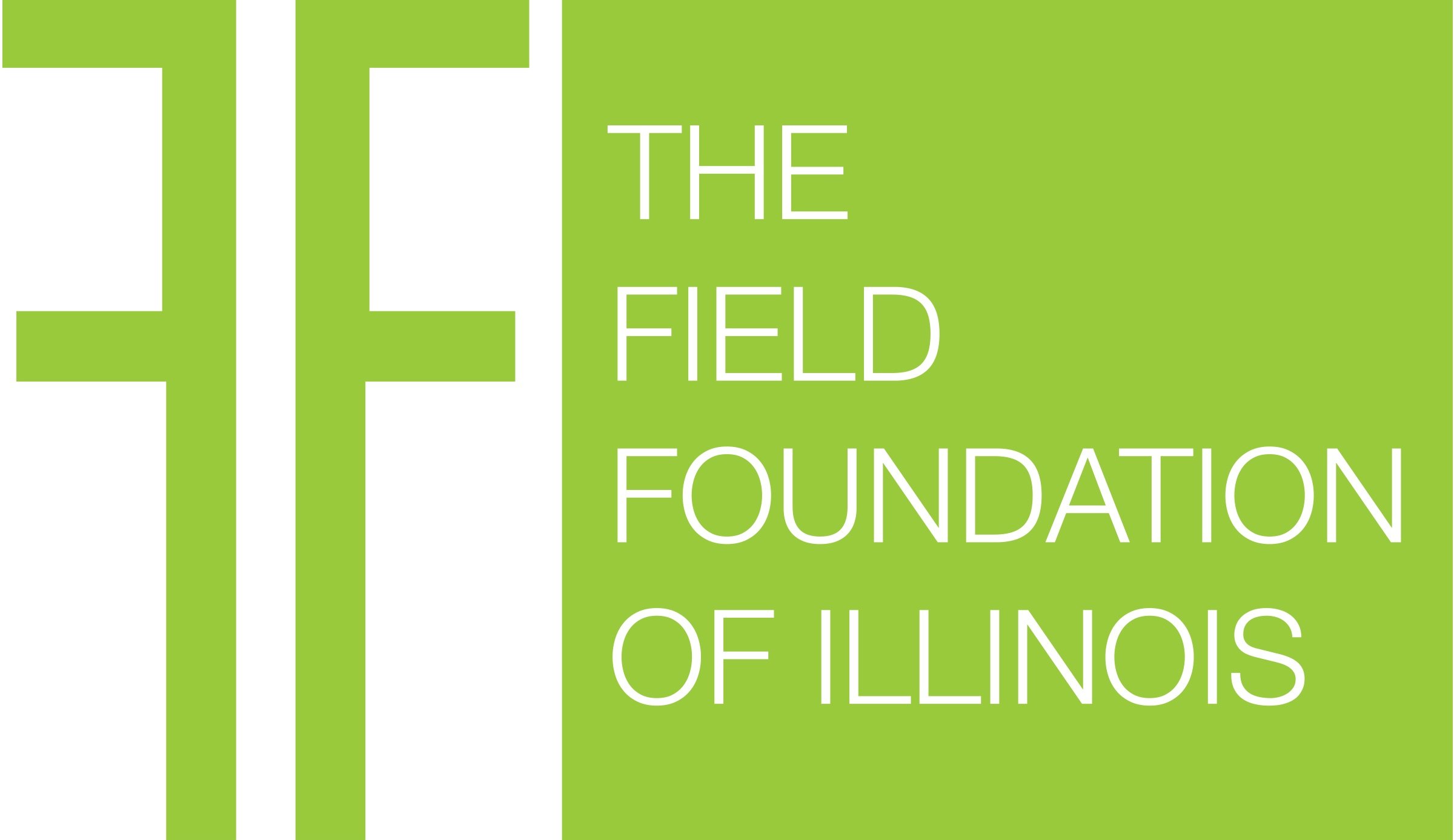MACBETH directed by Georges Bigot
/Let's start with Macbeth and Lady Macbeth. What makes them different from each other, and when are they indistinguishable? Lighting, lamps. A lot of the critical commentary I'm reading suggests that Lady is surpassed in imagination by Macbeth, and they're interestingly named too, aren't they? It's not Lady Macbeth and Lord Macbeth. It's like it's Macbeth and the lady version of Macbeth, and what's that like? There are Oedipal comparisons to make, with Duncan as father and Lady as Jocasta, but like Georges says, this is pre-Freudean. That makes everything devastatingly real for them, though. These aren't symbols from a story. These characters are having visions of hell, an actual place that is murky and has foul and filthy air where night is predominate, and they believe with their whole hearts that they're going there because of the actions they took that cannot be undone, that stopped the sun.
The reason the critics are suggesting Macbeth's imagination surpasses Lady Macbeth comes back to two mirroring actions or reactions. At the time of the murder, Macbeth says, "What hands are here? Ha: they pluck out mine eyes. Will all great Neptune's ocean wash this blood clean from my hand? No: this my hand will rather The multitudinous seas incarnadine, Making the green one red." which is a magnificently powerful piece of poetry. It brings to mind Moses turning the Nile into blood, and incarnadine is perilously close to incarnation. It is a miraculous vision and it is followed by much more; it's also a Messianic delusion. Lady, on the other hand, at the time of the murder (and without having done it herself) says simply, "A little water clears us of this deed." Yet when she's sleepwalking (what is Lady Macbeth like during the day? How does she conduct herself around her subjects and servants, knowing as she does and suspects that she is married to a murderous lunatic?) says, "Here's the smell of the blood still; all the perfumes of Arabia will not sweeten this little hand" still without appearing to have the same type of fatal, miraculous vision that Macbeth does. It's followed by nothing, but O, O, O. Oh but women do make some O sounds, though. It's all prose and it's almost all monosyllabic. They're almost labor noises. Or something like that. This coincidentally, is when the doctor and the Gentlewoman lose their shit, by the way. She's not only condensing an already hyper-condensed murder horror story into the middle of one scene, the way she does it, is by telling you the kinds of things that must go on when they're in bed together. You're aghast. You're stupefied, zombified. The Doctor, THE DOCTOR literally has his own "Throw physic to the dog" moment when he says "This disease is beyond my practice" and begs God's forgiveness. These people's worlds are turned inside out by what these two are doing together.
Macbeth is brutal, Lady is beguiling - Together they’re powerful and seductive, to whatever audience. Lady could be a murderer, too, but Macbeth is the confirmed killer, because we're with him almost the whole time. What she does, is she shows herself a witch (unlike Macbeth, who needs to be shown one, or three). She knows chemistry, sifting drugs in her posset to incapacitate the guards of Duncan in swinish sleep, occult and heavy-doomed. There’s a character in the Odyssey, the witch-goddess Circe, who invites half the crew of Odysseus’s VERY LAST BOAT to feast on cheese and meal sweetened with honey, and wine laced with a potion that turns them all into pigs. Only Odysseus’ lieutenant escapes to tell him, and Hermes warns him on the way to the rescue that she’s not to be trusted and will try and take his manhood, but can be resisted. Circe is impressed and promises to turn the beasts into men if Odysseus will make love to her. In another book of the Odyssey, Odysseus is captured by the sea nymph Calypso. They make passionate love for seven years. Then Odysseus leaves her to go back to his wife. They maybe have some kids, somewhere along the line. So Lady Macbeth almost certainly knows more things, a greater number of things, than her husband with the dull brain. Whether that means she knows MORE than Macbeth, is up for debate and worth discussing.
She initiates the plan, she sets Macbeth on, and she begins its final act. And then she disappears, and it's the apocalypse. Which makes Young Siward's death such an interesting opportunity for an actor. It's the only murder that occurs in the play after Lady Macbeth is dead. And once he dies, Macbeth says "Thou wast born of woman." Which is a strange and awful way to taunt someone as you kill them. It's a very brief moment, but they have a relationship in death. And we get to determine the dynamic of power between them.
The progression of our protagonists really is fascinating. Lady starts out in a full-on demonic possession unsexing herself to achieve the murder of a king, but when we leave her, there is something childlike and delicate and fragile about her, which humanizes her in an unexpected and overwhelming way. Whatever those O, O, O's end up being, they contain the wrought and wrung out total of Lady Macbeth's humanity. Birth, Suffering, Death, Petite Mort. Macbeth has a similar effect, although in some ways himself reversed. He STARTS OFF quasi-childish, but with an outsized vision of the world, which includes trumpet tongued angels and all the rest. As the play goes on, he becomes more virile, no longer requiring his Lady's spur to action, but it's almost as if the expansive space his imagination granted to us and him has declined, or been poured out over the course of the play. To the point that the very firstlings of his heart become the firstlings of his hand. Again, there's something admirable and impressive about this zealous decisiveness and the strength of his will, but we get less and less nuanced examinations by Macbeth of his increasingly brutal murders. It's almost as if he's become a hostage to his desires and imaginings. Imagine having the kind of power where anything you envision is instantly realized in the world. There's something horrifyingly vertiginous about that. And the Macbeth we watch becomes LESS conscious as the play goes on, as he's increasingly cabined, cribbed, confined, bound in by what he sees as the necessities of his circumstances.
Regarding Malcolm, I wonder how important it is to disambiguate Malcolm (or Donaldbain). Not necessarily as an actor but as an audience member. He doesn’t really have much to recommend him. At the murder, he speaks five lines of questionable emotion, feelings conflicted, and then runs away. He’s the rightful heir because Duncan said he was Prince of Cumberland before he was killed, but that’s about it. In this sense, saying he’s the man for the job is a rather low compliment and hardly worth the trip to jolly ol’ England.
But give him the chance to talk, and he’s got a tongue on him. 4.3 is the reverse of 3.4, the Macbeths’ hell-banquet which is the last scene in Act 3 that really makes sense, so it might not be a coincidence. The rest is Hecate and Lennox-whispers. The scene has a gilded or golden sheen to it. We’ve had trouble determining if it’s a Holy Light or the reflection of the crown, I think. But that is baked into the character. He’s an equivocator, equally convincing as the rogue or the saint.
It’s a very elaborate bargaining scene, stirring one another to action. Qualifying Kingship. Confronted with self-comparisons, point against point. Raising the stakes until it’s become the sacrificial mass of MacDuff and his entire household, a male witches’ Black Mass that scours and cures Scotland of Macbeth’s diseased presence.
“Angels are bright still, though the brightest fell.” Is he talking about Duncan or Lucifer? “Though all things foul would wear the brows of grace, Yet grace must still look so.” Not be so. Even his most striking image, “Nay, had I power, I should Pour the sweet milk of concord into hell” has a double meaning. He could be speaking of casting all harmony into the riot of tyranny, but he could also be pouring the sweet milk of concord, the milk that Lady Macbeth had taken for gall, into hell to neutralize it and quench its flame and furies. But if it’s good, why would it “Uproar the universal peace, confound All unity on earth.” ("If ill, Why hath it given me earnest of success, Commencing in a truth?" Malcolm may be thinking, of these men offering to make Malcolm king) What if commencing in a lie, which later you recant and abjure?
‘Tis hard to reconcile.
And then we come to Macduff, in many ways the warlike Apocalyptic Christ to the meek and humble Lord Jesus. The Word (Malcolm) made beefy, Scottish flesh. (Gross.) There are other parallels, though. We're more accustomed to Sweet Surfer Jesus in our day and age, but in the times in which Shakespeare wrote and Macbeth lived, their vision of Christianity was much different from ours. It was a militant faith, from the Crusades to the religious wars of succession that contextualize Shakespeare's life and work.
The folklore of that more medieval time was that when Christ was crucified, he descended to the gates of hell where he met a devil porter named Rybald, whom he of course rebuked and burst the gates of hell open, to free the souls of your various heaven-worthy personalities from the underworld. Abraham and the lot. Pretty similar to what happens in 2.3, except by opening the door to hell, we have to stay in hell until Macduff delivers Scotland.
And he does do it by a certain image of crucifixion. The soldiers he and Old Siward bring into England cut down the trees and rush to "memorialize another Golgatha." There's even an early Church tradition before the "Four Gospels" were canonized that Jesus was rejoicing in being crucified and does a whole dance with all his disciples at the Last Supper. That it's the great, transcendent fulfillment of his life and the cross is just the ladder to divinity. For all intents and purposes, riding off into the sunset shooting his pistols in the air. This is the kind of blood tradition a race of warriors might make meat out of.
Now, I'm not bringing up this stuff to suggest that Macbeth is a Christian allegory. There's just as solid a framework to make for a Pagan Nature fable, as one for instance, with us following Macbeth from the dawning of spring to the height of summer until he becomes ruinous Old Man Winter. I'm suggesting the Christian interpretation because it places the drama onto a larger backdrop than that of an individual tyrant's rise and fall. Shakespeare's stage was full of morality plays, where an individual's nature is fallen through sin, and then is redeemed or punished by God. Start to finish, complete in its trajectory. Which is a simplified reduction of the Christian religion. If you go further and look at the larger Judeo-Christian tradition, though, it's much more cyclical and problematic and lacking a solution that doesn't involve discounting human nature, and pride, and vaulting ambition. The Chosen People sin, God visits a calamity upon them until they repent and return to the faith. God delivers them and then they sin again.
This cyclical progression-without-progression (again suggesting the natural cycle of the seasons) underlies the entire structure of the play and, I think, adds to its nightmare quality. I remember being actually disquieted when I watched the Patrick Stewart version and after they show the cleared sets once it’s over, they cut to Macbeth and Lady, hand-in-bloody-hand descending an elevator, and I thought, “Oh no, they’re back.” The beginning is STRIKINGLY similar to the end of Macbeth. The murderous traitor is dismembered, the King gives out titles (English titles, too. Presumably, everyone was a Thane, a cousin, a kinsman, until Duncan named Malcolm Prince of Northumberland. Henceforth, we’ll all be earls.), and we await the next calamity.
That sounds pessimistic. Well, it is a tragedy.
Now, how do I think all this academic nonsense should inform our performances? I have no idea, but I think it may allow us to draw back and imagine for ourselves roles that are not just characters who strut and fret their hour on the stage, but as eternal actors who shift and contend with each other always, and we’re just showing you a little bit of it here tonight. With enough breathing room to ask whether we think Macduff or Malcolm see a difference between justice and vengeance.
There have always been both courageous and cowardly messengers. Likewise for the doctors in the different courts, one facing a tyrant, who must know full well that doctors don’t fare well in tyrants’ courts. Jews and Doctors. The members of the intelligentsia, they’re the first to go. And what kind of Soldier are you, after all? Or to try and find in yourself which part of you is Lennox the spy, because we all have a little bit of a spy in us. We know how to act like a spy, because we know what a spy is, and so he or she is already in our head. Now we just have to perfect it, on the stage.
I've been reading Ovid's Metamorphoses, which is one of the sources we know for certain that Shakespeare drew inspiration from. And you can absolutely tell. The style of poetry is very reminiscent of his, I was really shocked to discover. I came across this passage that I think might be illuminating for our witches , so I thought I'd share it with y'all, because it echoes Shakespeare's presentation of the witches/Hecate, but in a way that, I think, may even be more horrifying. It takes place in the Greek/Roman pantheon, but in some ways, Kali is similar to Juno, who is Zeus/Jove's much maligned and very vengeful wife. When she wants to attack some married devotees, Ino & Athamas, of the rival god Bacchus, she descends into the Underworld in order to rouse the Furies to drive them mad. Just as a note, Latin doesn't have articles, so the translation can seem kind of stilted, but after reading it for a while, you get into the rhythm and it actually feels very natural, almost primal.
So! Juno just gave the snake-haired Furies their mission, and the leader Tisiphone, is getting ready to embark.
at once nasty Tisiphone takes torch soaked
in blood, dons robe dripping gore, & snake-wrapped
leaves house: Mouring & Fear, Terror & Madness
(face twitching) accompany her; she stands on threshold:
the Aeolian doorposts tremble (they say); dullness infects
the maple doors; sun abandons sky; horrors
scare Ino; Athamas, terrified, tries to leave,
can't: Fury, awful, blocks exit; arms
twisted with snakes reach out; hair shakes
making snakes hiss; down shoulders, on breasts,
snakes: sibilant, spitting poison; tongues flashing
Fury tears two from hair, tosses them (hands
contaminated) onto breasts of Ino & Athamas: sliding around,
exhaling heavy breath: no bites on body:
only minds feel bit: monster-poisons
added: froth from Cerberus-mouths, Hydra-virus,
illusions, dark-minded forgetfulness, wickedness, tears,
madness, the urge to kill; all mixed together
with fresh blood, stirred with green hemlock
& cooked in bronze pot
pours fury-venom on both chests (terrified)
deep into hearts; then, in circle of fire, she swings
fiery torch back & forth quickly, continuously;
successfully; job done as ordered, she returns
to great Dis hollow realms; & ungirdles snakes
suddenly Athamas, in place & mad, yells:
"Nets out here, guys, in woods: seems
I saw lioness & two cubs here";
crazy, tracks wife's steps as if she were beast;
grabs son Learchus from mother's lap, little
arms outstretched, smiling: swings him like sling
& smashes baby head hard against rock;
mother, disturbed by grief or poison, howls,
runs, hair flowing, deranged, holding
you, little Melicerta, in bare arms
& yelling, "Hey, Bacchus!"
There's obviously the parallel (plagiarism!?!?) with the reveal of a baby's head being smashed emerging so shockingly and suddenly from the poetry, and the list of ingredients used is reminiscent of the double double scene. Even the "sun abandons sky" places us in the same atmosphere as Macbeth and "no bites on body: only minds feel bit" really reminds me of "Full of scorpions is my mind, dear wife." So I wanted to share it with you to shine a light on what's similar and what's different between this presentation and our witches, and in case it opens any new doors for you (or honestly, for Lady Macbeth, since these are the types of powers she's invoking and communing with, and she does end up going mad in a similar fashion), and also to bring up the unexplored possibility of the witches having animal companions. Snakes are the obvious choice, but throughout history and folklore, witches are almost always seen with some kind of animal familiars. Black cats and the like. I'm not sure how we could make that possible in our theater, but even some kind of suggestion or representation of it could be very powerful or off-putting for our audience.
Who are the murderers? The question is never answered, directly. They’re never given names, never given a motivation, never given any more of an identity than the worst deed that they perform onstage. They’re portrayed in different productions variously as pathetic and coerced by Macbeth out of fear or want, stooges manipulated out of their own stupidity, or cartoonish villains who simply enjoy the ghastly act of killing. All of these are supportable by the text, mostly because they have so few lines. They are shrouded by their reticence.
But we do receive a psychological profile, for lack of a better term, of these two in the scene with Macbeth, or at least a self-conscious projection:
“I am one, my liege, / Whom the vile blows and buffets of the world / Hath so incensed that I am reckless what I do / To spite the world.”
“And I another, / So weary with disasters, tugged with fortune, / That I would set my life on any chance / To mend it or be rid on’t.”
I use the following language not to indicate a religion specifically (these guys would obviously all be as “Christian” as anyone else in 11th century Scotland) but because of its proximity to our circumstances “in the real world” and because it seems like Georges is listing in this direction for these characters as well. But that is exactly the psychology of the jihadist and the suicide bomber, respectively. Rage and Despair. If we were inclined towards them politically, they could be called Freedom Fighter and Martyr, but it’s very hard to apply to them any high-mindedness or nobility when we’re in their presence.
And why not? Well, the answer is obvious enough: they kill women and children and Banquos. And the latter not on a battlefield, as soldiers, but in a nighttime ambush on the way to a feast. So they are evil men, yes? Well, yes, but in order to make it interesting, we have to wonder HOW they are evil and, more globally, what the nature of that evil is.
I just finished reading a book called Secondhand Time: The Last of the Soviets (very highly recommended) which is a collage of interviewees speaking about their lives spent in Communist or Post-Communist Russia. One of the storytellers, a young man, describes a night spent drinking with his future father-in-law while he was visiting his fiancée’s family. His father-in-law, after many rounds of vodka, reveals to his new family member that he had been a torturer in the Soviet prison camps and took delight in enumerating his methods to his son-in-law until he was physically sick and fearful. He wasn’t sorry, he said, because fear, fear of the power of the State and what it can do to punish disloyalty, is the essential ingredient for peace. The terrorizers and executioners are able to view themselves as good people, are able to answer the old question “How do you sleep at night?” not because they think of themselves as innocent of any crime, but because they truly believe that although they voluntarily discard their own humanity and deny it to their captors and victims, the fear that they induce in the People makes possible the very conditions on which humanity itself is reliant.
Now, that’s just one way that “evil” can manifest, and it may be asking a bit too much of our murderers to be so socially minded (although, again, maybe not). And not to suggest that our murderers must have a Russian soul, but Dostoevsky explored murder in a more general sense with Raskolnikov in Crime and Punishment. He kills an old woman, a moneylender, for a piddling sum of money which he then buries under a rock to avoid detection and never makes use of. He’s a brilliant young law student before he drops out of college and isolates himself in the tiny, cramped bedroom apartment where he plans the crime. His justification for it when asked by a rival, is that there are some individuals who are so great that the laws of ordinary folks simply do not apply to them. That, in fact, they are invited to break these laws in order to usher in the advancement of a new age, made in their image. Is that self-perception at the core of the murderers, a murderer, any murderer?
Macbeth, it goes without saying, is a murderer. But is he the same kind of murderer as these two? He only kills Duncan and Young Siward in the text, all the rest of his many killings are performed by the murderers. And how many murderers are there, anyway? In our production, of course, the murderers will be played by the same actors throughout. But is murdering contagious? When it’s placed as the foundation of order in a society, can’t we expect it to spread to more and more people? A quick look at history, a quick look at Syria or any other society engulfed in civil war, points to that being the case. (edited)
There’s a concept called Stochastic terrorism:
“Stochastic terrorism is the use of mass communications to incite random actors to carry out violent or terrorist acts that are statistically predictable but individually unpredictable. In short, remote-control murder by lone wolf. This is what occurs when Bin Laden releases a video that stirs random extremists halfway around the globe to commit a bombing or shooting.”
People were accusing Trump of this tactic as well when he made his “Second Amendment People” comment (He said that second amendment people could maybe “do something” if Hillary were elected). I bring up Trump to compare him with Macbeth. I don’t think Act 3, Scene 1 is exactly that kind of tactic, because it’s very clearly directed at these two characters, not just sent out as a mass communication to anyone who’ll listen. But the more I read it, the more I think something truly strange is happening, in a hypnotic/mind-control/subliminal messaging sense. Were these two characters murderers before they walked in the door, or did Macbeth turn them into murderers with his rhetoric? They don’t seem terribly experienced when they botch Banquo's and Fleance’s killing, although they certainly seem to have found their stride by the time they reach Macduff’s castle. They enter and Macbeth speaks in prose, and the murderers confine themselves to one line responses until they say “We are men, my liege.” At which point Macbeth has his long monologue about dogs in poetry, and the murderers respond in multi-line poetry, as well. Are they imitating his style (the way we were talking about Seyton, his most loyal follower, doing in our last rehearsal)? The speech, too, is a strange simultaneous debasement and elevation, like Make America Great Again is. You are awful, mongrels, because you deserve to be better.
Dramaturg: Matthew James McMullen / Photo Credit: Devron Enarson







































